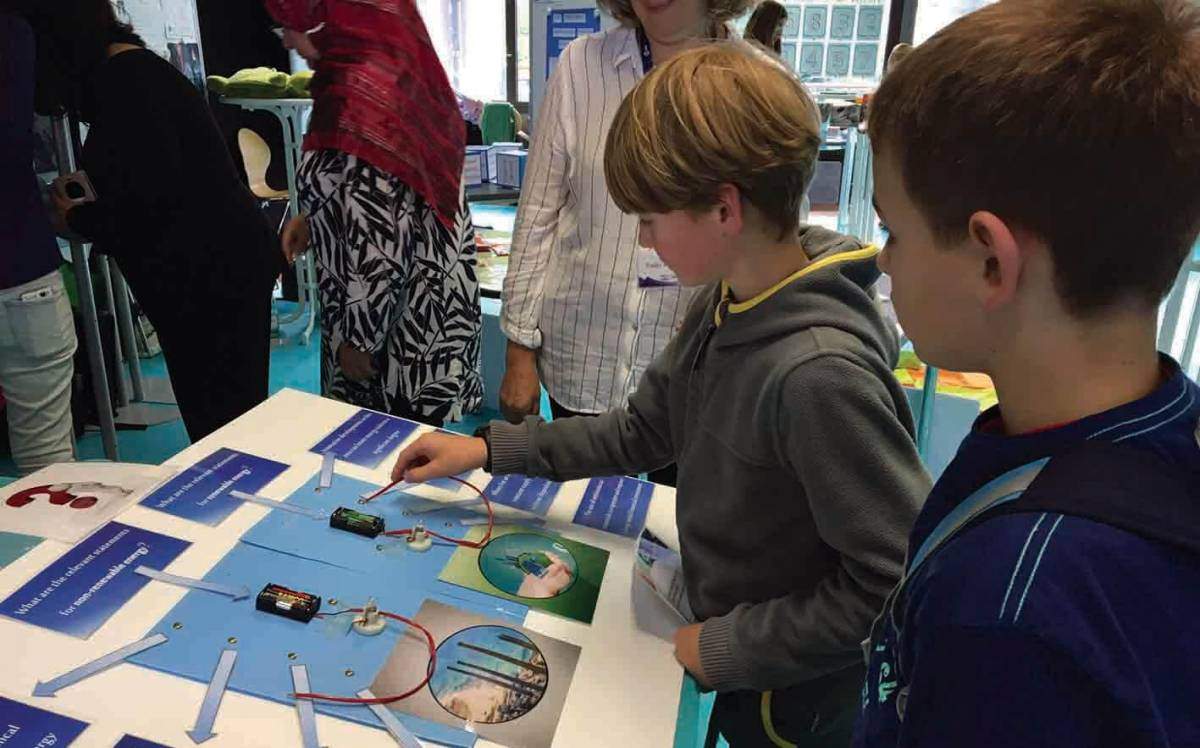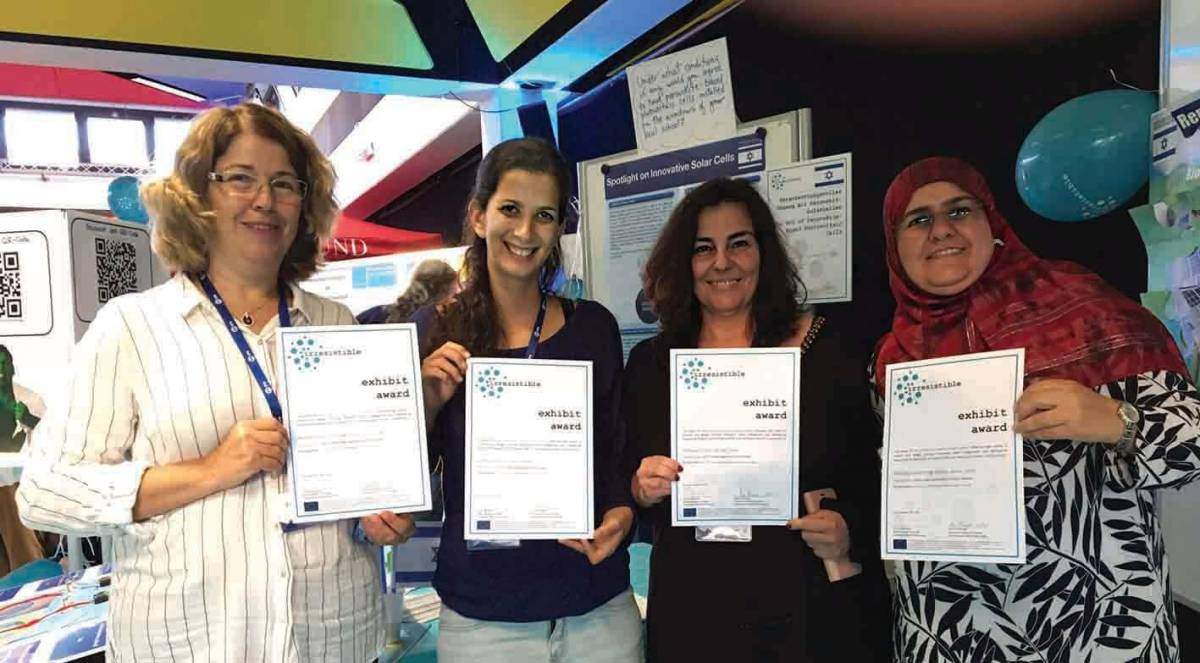Are you a journalist? Please sign up here for our press releases
Subscribe to our monthly newsletter:

Israeli science teachers were in Kiel, Germany, last October, for a unique event. For the previous three years, teachers from ten European countries, including Israel, had been leading an educational project on issues of science and society. At the event – a closing party for the "Irresistible" project – teachers and project leaders from each country showed the exhibits their students had created, each on a subject they had researched and debated. The participants got to meet and talk with educators from the Netherlands, Turkey, Germany, Poland and more. The exhibition was held at Kiel University in conjunction with the European Researchers Night – an event celebrated in Israel, as well – and over 2,000 visitors attended. Prof. Ron Blonder, Head of the chemistry group in the Science Teaching Department of the Weizmann Institute of Science, called the evening a “celebration of science.”
The project as a whole was called Irresistible, and it aimed to start a discussion among high school students on the effects that current scientific progress is having – and will have in the future – on society. By talking with scientists who are researching relevant topics, the students are guided toward an understanding of responsible research and innovation (RRI), and the ways they can help shape the future.
The idea was not to come up with the ‘right’ answer, but to show an understanding of all sides of the subject
The Israeli module was designed by Blonder, five chemistry teachers, a representative of the Clore Garden of Science and Dr. Sherman Rosenfeld of the Science Teaching Department. The topic chosen was that of replacing the windows of schools with solar windows containing the mineral perovskite – a material that efficiently changes solar energy to electricity. More than 300 Israeli students participated in the program.
In talking with Prof. David Cahen of the Weizmann Institute’s Materials and Interfaces Department, the students learned that perovskite is an excellent material for solar panels and cheap to produce, but it contains small amounts of lead that can cause poisoning.
“The idea was not to come up with the ‘right’ answer, but to show an understanding of all sides of the subject before taking a decision,” says Blonder. “Interestingly, different classes came to different conclusions,” she adds.
The display the Israeli teachers presented in Kiel included such interactive exhibits as a game that showed all sides of the question, and it was put together by the students.

The teachers wrote a blog about their experiences in Germany: “If we had to point out the most impressive aspect of the IRRESISTIBLE exhibition in Kiel, it was, without doubt, the rich and creative ways in which RRI was integrated into the other modules. We learned from their work, and there is no doubt that we adopt it in the future with our own students in Israel.”
The funding for the program has come to an end, but Blonder and the rest of the team are finding ways to support its sustainability by including the topic in various ways in science education projects – for example, in an exhibit on renewable energy in the Clore Garden of Science. Indeed, understanding how science affects us day to day – and how to conduct an informed debate on the subject – may be one of the more important lessons all students need in their lives.